Get prepared for end-of-life decision-making
Preparation plays a crucial role in good end-of-life decision-making. By educating yourself and your loved ones on the available options and possibilities, you can make informed decisions about how you want things to play out. Being informed is being empowered, and it means you get prepared for end-of-life decision-making that align with your personal values and beliefs, ensuring that you have a sense of peace and control during a potentially difficult time.
1. The importance of educating yourself and your loved ones about end-of-life care options
Educating yourself and your loved ones about end-of-life care options ensures that you can make informed decisions about what you want to happen. Investing the time and energy into discussing end-of-life plans with those you are close with is invaluable, and it can be a gift that gives peace of mind at difficult times. Setting end-of-life plans in motion will enable you to focus on living fully until the end, rather than devoting energy towards unclear decisions.
2. How a lack of education and awareness can lead to unnecessary conflict and suffering
Without an understanding of what someone wants for their own end-of-life situation, families can find themselves tangled in heated disputes with no clear solution. This in turn can lead to battles or agonising decisions that could have been avoided altogether, and which make end-of-life decisions far more emotionally taxing than they need to be. In the worst cases, even after death, there can be lasting tensions between family members.
3. The role of advance care planning in making informed end-of-life decisions
Advance care planning is an incredibly important process that allows you to make your end-of-life wishes known once you’ve made decisions, and also allows your loved ones to navigate end-of-life issues with greater transparency and clear expectations. Through advance care planning, you can clearly set out your wishes in a legally binding document that ensures your end-of-life decisions are carried out according to plan, regardless of what the situation may be when medical decisions need to be made. This invaluable tool increases the likelihood of informed end-of-life decisions while providing comfort in knowing that plans are in place should any unfortunate events arise. Read more on “Why advanced planning for your death is a loving act” here.
4. The benefits of early conversations about end-of-life care and planning for the future
Conversations about end-of-life matters can start whenever you’re ready to have them, but unfortunately it is often only discussed when someone becomes elderly, experiences health problems. Broaching the subject and getting the process underway not only gives everyone involved peace of mind, but also allows us to make important decisions for and about ourselves, and to spare loved ones from facing difficult end-of-life decisions on our behalf. Having an end-of-life plan (or at least starting the conversation) as early as possible can lead to a smoother transition for everyone, helping to ensure we receive the proper services and living arrangements we need, and also making sure that all legal documents are properly completed ahead of time.
5. The impact of cultural and societal beliefs on end-of-life decision-making, and the importance of addressing and understanding diverse perspectives
The decisions people make about their own end-of-life plans are often impacted or shaped by cultural, religious, or social beliefs However, few of us recognise the importance of educating ourselves in these perspectives. Education can provide insight into end-of-life decisions through shared life experiences, as well as identifying the values in other cultures and societies. Doing so results in an environment where end-of-life decisions are considered with greater awareness and favour respectful discourse over heated debate. For some people, this awareness and self-reflection allows them to acknowledge possible influences that are actually external, rather than factors rooted in their own personal beliefs, and so make more meaningful, authentic decisions about the end of their lives. You can read this full guide on end-of-life decision-making here.


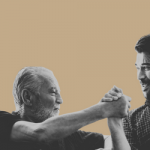

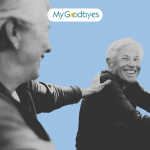 Choosing a Funeral Director
Choosing a Funeral Director 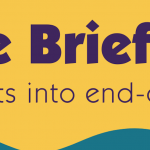 Alt:Endings
Alt:Endings  How to Balance Work and Life After A Break
How to Balance Work and Life After A Break 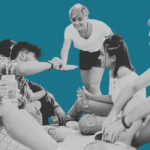 MyGoodbyes Party – Picnic in the Park
MyGoodbyes Party – Picnic in the Park  Planting Memories with Forget Me Not Seeds #ForgetMeNotChallenge
Planting Memories with Forget Me Not Seeds #ForgetMeNotChallenge  Family history and legacy
Family history and legacy  The Briefing: Vicki Gulliver Head of the Probate team at Lodders
The Briefing: Vicki Gulliver Head of the Probate team at Lodders 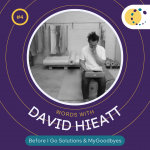 Words With….David Hieatt
Words With….David Hieatt